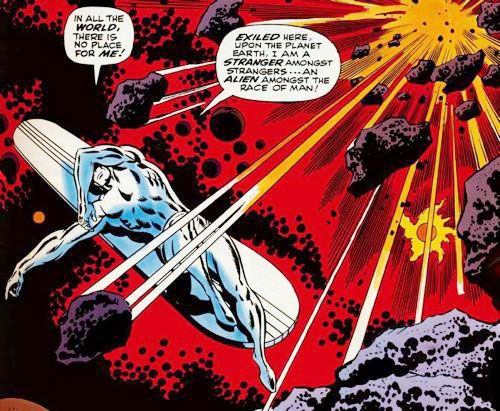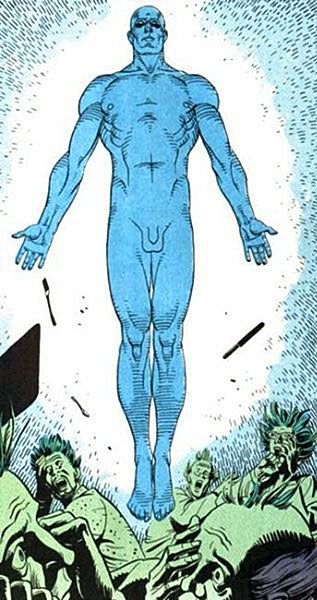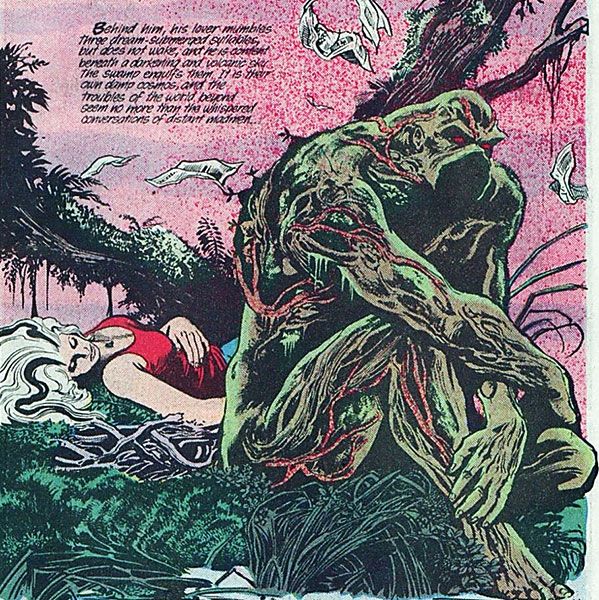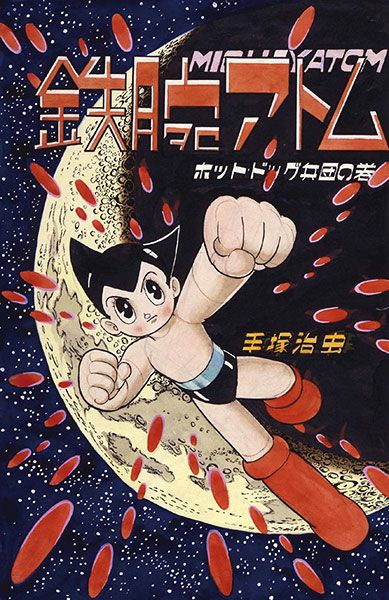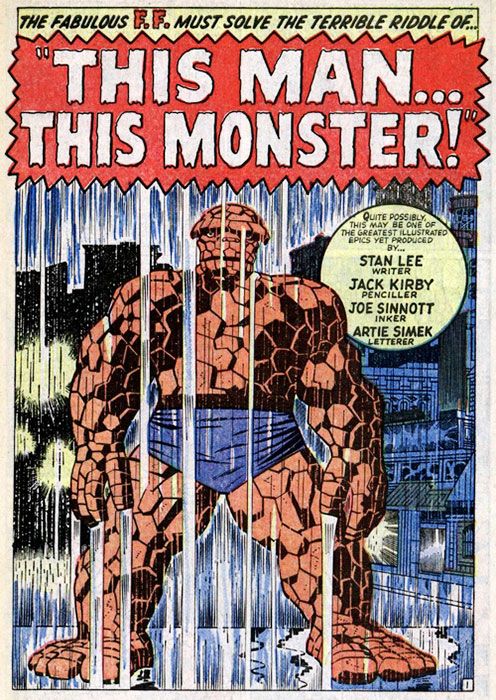As ridiculous as it is to compare superhero comic books to the real world, there is one area in which I can’t help but do so, and that is in the ways in which nudity is treated. Within the logic of superhero universes, the implications of and reactions to nudity are radically different to our own. It is generally acknowledged that revealing clothing and near-nudity is one of the ways in which women can be objectified, i.e. turned into objects of desire instead of complex, human adults. However, in writing about the nudity of some of my favorite superheroes, I began to see another way which nudity can be used; as a signifier of power and outsider status.
Years ago, one of the first articles I wrote about comic books for a website was a silly list of the top ten most naked superheroes. At the time I did it with no end in mind, but making the list highlighted a lot of interesting aspects of nudity and the way we unconsciously categorize costumes and clothing. I found that the most naked of the superheroes tended to be male and rather than being sexy as I had assumed it would be, this nudity was consistently emblematic of their immense power and their complete separation from “normal” society.
Obviously the most revealing superhero costumes are those which are entirely naked, like Doctor Manhattan, the Swamp Thing, the Silver Surfer (sometimes drawn with shorts, sometimes without), and Girl One (who didn’t look naked but her “costume” was actually just pigmented skin patterns). Then you’ve got the nearly naked superheroes in only shorts (or a correspondingly small amount of clothing), like the Thing, Beast, Sub-Mariner, Hulk, Ka-Zar, and Astro Boy.
It is interesting to note that none of these characters are (strictly speaking) human. Their lack of clothing doesn’t just highlight the pointlessness of clothing for them, but also their alien, inhuman, outsider status, which would explain why they feel safe to eschew clothing - what else do they have to lose? As an aside, I find it fascinating that out of all of these characters, only Doctor Manhattan has visible genitalia (the most vulnerable part of a non-superhero male’s body, indicating his complete separation from humanity) and only Girl One addressed her nudity. These very awkward and complicated interactions have been understandably avoided by most writers, but for all the furore about his personal statements in various interviews, it is only Alan Moore who has been interested in overtly addressing the implications of his character’s nudity.
Overall these are all such powerful superheroes that they don’t need clothing. Of course there is a correlation between power and nudity; before clothing was decorative it was simply protective and these character just don’t require that protection. In fact, most clothing would just need to be inconveniently replaced after every fight while their skin would be fine. Therefore it makes sense that if a character is created to be completely invulnerable, impervious to heat or cold, pain or discomfort, then they wouldn’t need clothing.
Then we get to the less functional aspect of the decision to go nude; convention. All of these superheroes live outside of society, whether it is because they have been rejected, isolated, born on another planet or plane, or are synthetic beings. They are not part of human society, and very few of these superheroes have a secret, human identity. For some of them it is possible that the lack of clothing is a conscious rejection of the norms of the civilized world, but it is much more likely that they’re so distanced from it that they just don’t think about it.
As a device in fiction, nudity is usually a device to titillate, so I appreciate the fact that in the superhero comic book world nudity can also have the opposite function; to mark the character as more powerful than regular humans and not a part of our social constructs.

